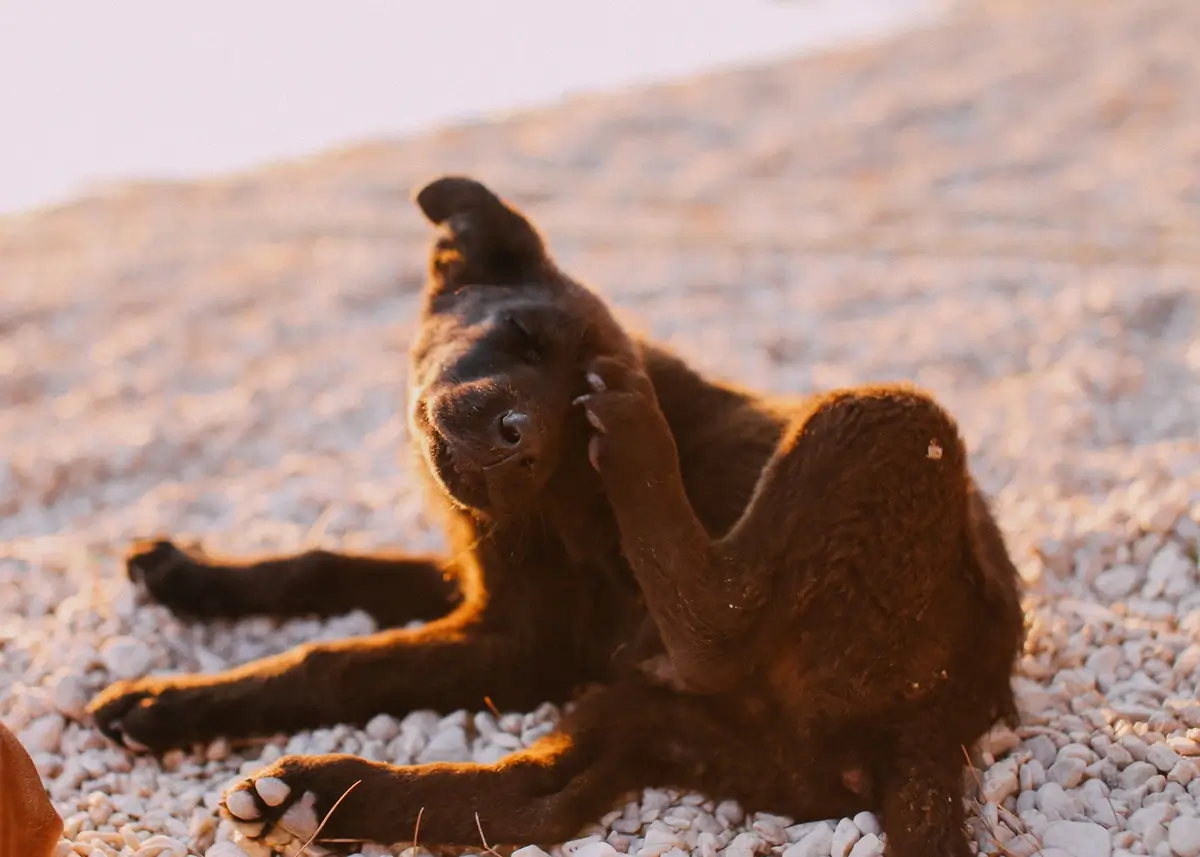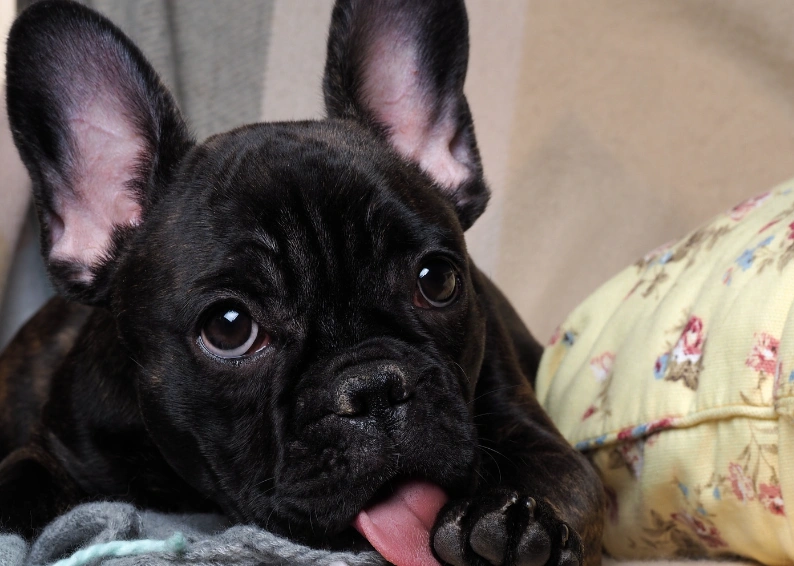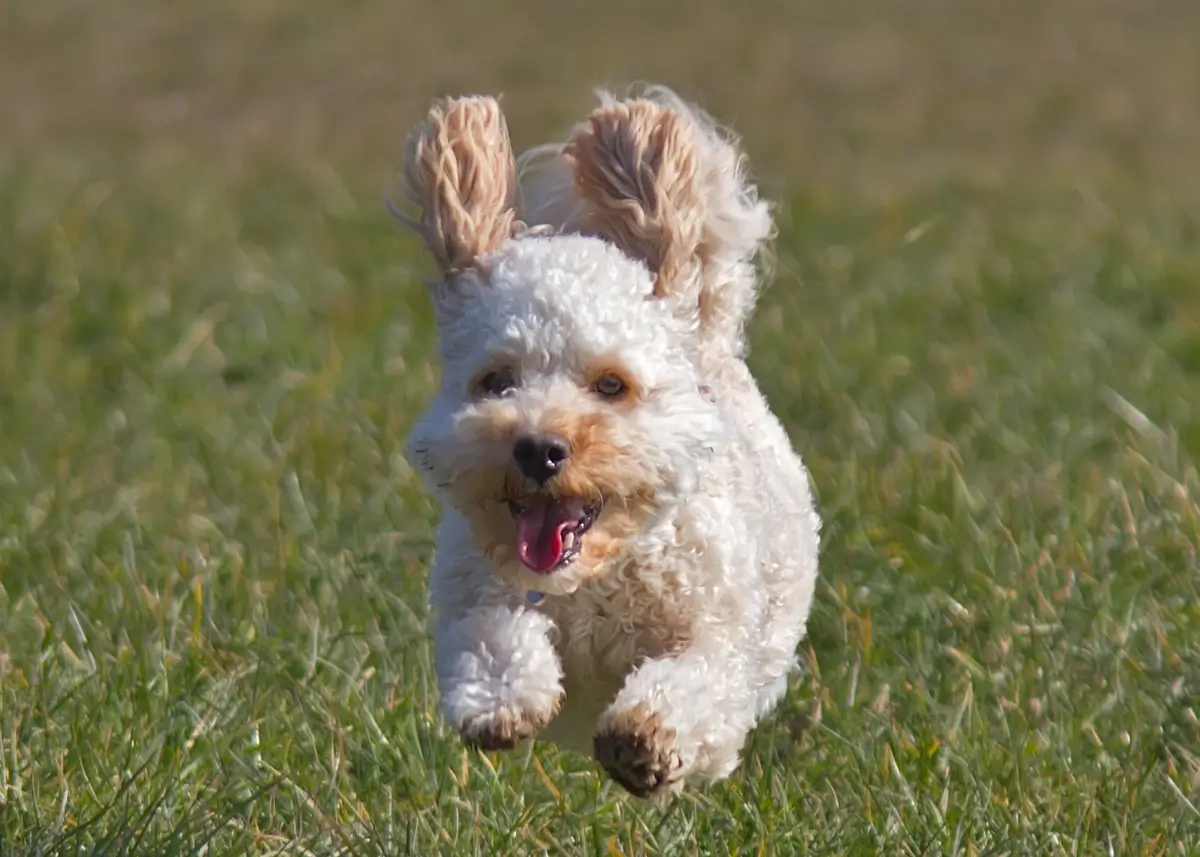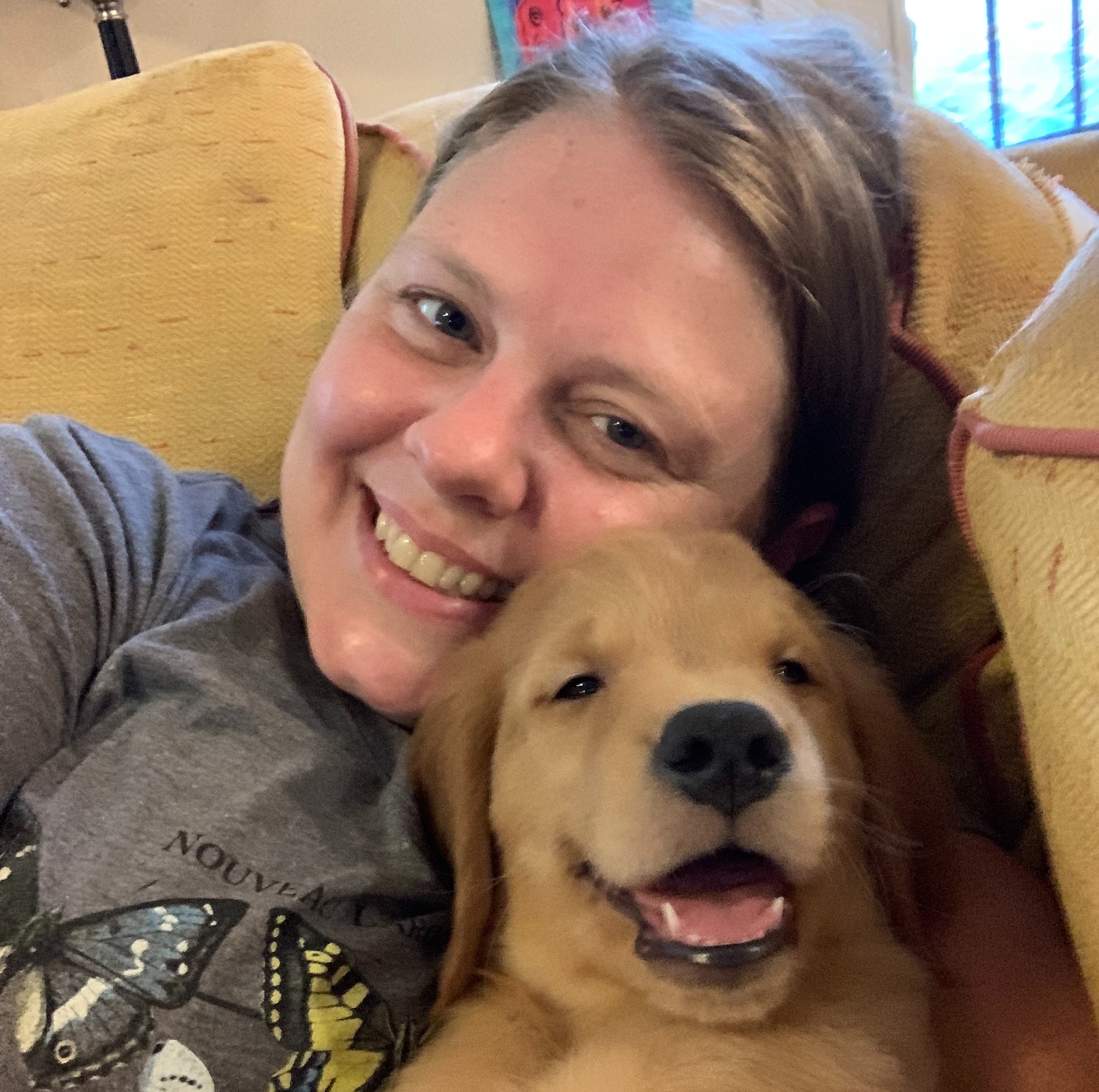Your puppy keeps licking its paw as if it were a delicious ice cream cone on a hot summer day. Speaking of hot, you also notice a hot spot forming on her skin from scratching one particular spot so much. Your puppy also keeps sneezing!
What’s going on?
Allergies in dogs are a common health concern that can cause discomfort and affect their quality of life. We hate to see our furbabies suffer in any way and want to do whatever we can to alleviate their pain. If you notice itching, scratching, licking, runny noses and eyes, or swelling, your puppy may be experiencing allergies.
It can be frustrating dealing with allergies in your puppy, especially if several symptoms overlap from various causes. In this guide, we’ll learn what an allergy does to a puppy’s body and various causes, symptoms, and treatments for allergies in dogs. As always, call your vet immediately if you suspect your puppy needs immediate medical attention.
What Are Allergies in Dogs?
An allergy is your puppy’s immune system reacting to a foreign substance called an allergen. These are proteins from animals, plants, foods, insects, chemicals, and more. Your dog’s immune system releases chemicals like histamines that cause different symptoms as they try to fight the allergen’s presence. Allergens in the environment can enter the body through contact, inhalation, or ingestion.
What Causes Allergies in Puppies?
There is not a singular cause for all allergies in puppies. A response from environmental or genetic factors can develop into an allergic reaction. Knowing what factors can set off an allergic reaction will help you be proactive in preventing puppies from allergies. There are three main ways an allergen affects puppies: environmental factors, flea allergy dermatitis, genetics, and food allergies.
Environmental factors
Allergens in the environment that cause reactions in dogs are grass and other plants, trees, pollen, dust mites, mold, and more that affect a dog’s immune system. Most of these causes are typically lumped together as seasonal allergies but can occur year-round, especially in warmer climates.
Skin allergies in dogs can cause a great deal of discomfort and infection in a puppy and are the most common allergies in puppies. Atopic dermatitis in dogs is a chronic inflammatory skin condition triggered by environmental allergens like pollen, dust mites, and mold spores. It’s a lifelong disease that requires long-term management and regular veterinary examinations during painful flare-ups.
Flea allergy dermatitis
Fleas can cause flea allergy dermatitis. Even the bite of one or two fleas a week can result in a reaction. Fleas inject their saliva containing the amino acids, peptides, and enzymes triggering a response from your puppy’s immune system. The reaction can show up as soon as 15 seconds or as long as 48 hours from the flea bite.
Food allergies
A food allergy reaction occurs when the immune system mistakenly identifies certain proteins in food as harmful invaders. Food allergies can develop at any time, even if there has been no problem with the particular food prior to the start of the allergy. Certain ingredients in commercial dog foods, such as beef, chicken, wheat, soy, dairy, and artificial additives, may trigger allergies in sensitive puppies.
Genetic predisposition to allergies
Certain dog breeds may be predisposed to allergies, and they usually begin to emerge 6 months to 3 years old but can begin at any time. While any breed can experience allergies, the breeds to pay closer attention to their reactions are Boxers, Boston Terriers, Bulldogs, Chinese Shar-Peis, Dalmatians, Golden Retrievers, Labrador Retrievers, Scottish Terriers, Shih Tzus, Wirehaired Fox Terriers, and West Highland White Terriers.
Symptoms of Allergic Reactions in Dogs
Before you can identify an effective treatment plan, you’ll need to know how to recognize the symptoms of an allergic reaction in dogs. All dogs can react differently to the same allergen, and an individual dog can even have various reactions to an allergy they’ve experienced before.
If you notice your puppy exhibiting one or more of these symptoms enough to make you pause, call your veterinarian to schedule an exam to determine the cause and the best plan of action.
- Hives
- Licking
- Hair loss
- Sneezing
- Flaky skin
- Rashes or wounds
- Anaphylactic shock
- Runny nose or eyes
- Itching and scratching
- Rubbing face and ears
- Edema (face or throat swelling)
In addition to the symptoms above, food allergies can cause gastrointestinal issues like diarrhea, constipation, chronic gas, or vomiting.
Testing for allergies
If your puppy has concerning symptoms, your veterinarian can conduct a variety of tests to pinpoint allergy issues to choose the appropriate treatment. While testing may not give all answers, it will provide a starting point to understand what the problem is that is causing severe reactions.
Elimination diet trials will place your dog on a strict diet of certain foods, slowly introducing foods over time, usually 8-12 weeks, to watch for reactions in common foods found in dog food. Only do this under the care of a veterinarian so you aren’t doing more harm accidentally than good.
Intradermal skin testing looks for reactions of different allergens injected into the skin. Based on the results, the vet will prescribe a custom allergy plan to help with triggers.
Blood testing detects allergens in a blood draw but can be less reliable than an intradermal skin test. Lastly, sometimes all a veterinarian needs is to conduct a visual examination to identify the allergy.
How to Treat Dog Allergies
Depending on the cause of the allergy, you and your vet will talk about various options for treating allergies in puppies. Some may be medication while others involve using specialty products, giving supplements, or changing your puppy’s environment. Here are some specific ways to help your puppy cope with allergies your veterinarian may suggest.
Environmental allergies
Vets may prescribe or recommend particular medications like steroids, cortisol, or antihistamines. Immunotherapy and allergy shots or drops are customized by matching test results with prominent allergens to help the needs of the individual puppy. These shots may take time to work, but your vet will help you assess your puppy’s improvement on this treatment.
Special shampoos, conditioners, salves, oils, wipes, creams, and other products containing soothing ingredients like coconut oil, oatmeal and aloe help prevent and treat surface spots. Your vet may also recommend food changes and supplements to help skin health.
There are some actions you can control in your environment to reduce the chance of allergic reactions:
- Limit the time your puppy is outside during pollen and grass season, wiping them down after romping around in the yard or taking them on a walk
- Choose gentle, allergy-friendly shampoo and take frequent baths to remove allergens
- Maintain a dust-free home and keep bedding clean
- Run a dehumidifier in spaces where your puppy frequents
- Change your air filters regularly or use a HEPA filter
Flea Riddance
Treating flea allergies in puppies sounds like it has a simple solution – just get rid of them! If you’ve ever battled fleas, you know that’s easier said than done and can be a never-ending effort to eliminate them.
Preventing flea allergies
Your vet will recommend a flea, tick, and heartworm preventative as the first defense in preventing fleas as well as medication or products to treat existing fleas. You can also make environmental changes to your living environment on how to reduce the risk of a flea infestation. Regularly groom your dog to check for skin infections and the presence of fleas. Wash all of their soft toys and bedding in hot water to kill fleas and eggs. Vacuum frequently and empty the canister in case live fleas or eggs are contained. Limit your dog’s interaction with dogs you’re not familiar with, especially outside. Clean up your yard and treat with pet-safe products to deter fleas. If you follow all of these recommendations, you’ll be living a flea-free life with your puppy.
Treating food allergies
After the test discovering food allergies, your vet could approach treatment in a few ways. The first obvious way is to eliminate the ingredient from your dog’s diet. However, this is not possible for every case, especially if the ingredient is a common factor. Your vet could put your puppy on medication or a special diet or food. In addition, he or she may recommend certain supplements like fish oil or other Omega-3 fatty acids to help reduce the effect of food allergies on your puppy.
Prevent Allergies with Pawrade Puppies
We at Pawrade understand how uncomfortable allergies can be for puppies. That’s why all of our puppies receive quality healthcare from our trustworthy network of breeders before snuggling in your loving arms with regular veterinary care and appropriate core vaccinations and deworming. All puppies have a clean bill of health before traveling to begin their lives with you.
If you suffer from allergies, Pawrade offers hypoallergenic puppies that grow hair instead of fur and a reduced amount of dander. While no puppy is truly allergy-free, hypoallergenic dogs are a good choice for those with allergies to stay away from antihistamines and tissues.
At Pawrade, you’ll never get hives trying to navigate the puppy adoption experience. We have a dedicated Puppy Concierge Team ready to walk you through each step of the way for a secure, safe pet adoption.
Itchin’ to get started with your own puppy? Browse our puppies for sale to begin caring for the best friend you’ll ever have.




